Filter by
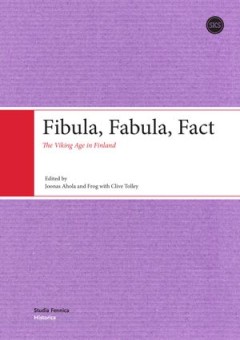
Fibula, Fabula, Fact
The chapters of Fibula, Fabula, Fact – The Viking Age in Finland are intended to provide essential foundations for approaching the important topic of the Viking Age in Finland. These chapters are oriented to provide introductions to the sources, methods and perspectives of diverse disciplines in a way that is accessible to specialists from other fields, specialists from outside Finland, and a…
- Edition
- Vol. 18.0
- ISBN/ISSN
- 9789522227645
- Collation
- -
- Series Title
- -
- Call Number
- 418 FIB f
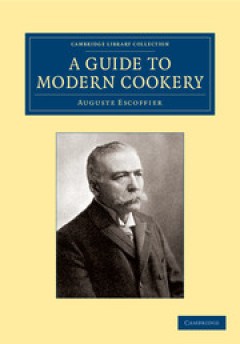
A Guide to Modern Cookery
The late nineteenth and early twentieth centuries witnessed a revolution in the eating habits of European households with disposable incomes. Central to the culinary history of the period is the innovative French chef Georges Auguste Escoffier (1846–1935). His cooking methods, combined with a modern approach to managing professional kitchen staff, contributed to the development of a fashionab…
- Edition
- -
- ISBN/ISSN
- 9781139626637
- Collation
- -
- Series Title
- Cambridge Library Collection - European History
- Call Number
- -

A Grammar of the Mahratta Language To Which Are Added Dialogues on Familiar …
Marathi, an official language of Maharashtra and Goa, is among the twenty most widely spoken languages in the world. The southernmost Indo-Aryan language, it is also spoken in Gujarat, Madhya Pradesh, Karnataka, and Daman and Diu, and is believed to be over 1,300 years old, with its origins in Sanskrit. First published in 1805, this grammar of Marathi (then known as Mahratta) was compiled by th…
- Edition
- Ed. 1
- ISBN/ISSN
- 9781139519847
- Collation
- -
- Series Title
- -
- Call Number
- -

Architecture and Mathematics from Antiquity to the Future: Volume II: The 150…
Every age and every culture has relied on the incorporation of mathematics in their works of architecture to imbue the built environment with meaning and order. Mathematics is also central to the production of architecture, to its methods of measurement, fabrication and analysis. This two-volume edited collection presents a detailed portrait of the ways in which two seemingly different discipli…
- Edition
- Ed. 1
- ISBN/ISSN
- 978-3-319-00143-2
- Collation
- XIX, 690
- Series Title
- -
- Call Number
- 624.183 ARC a
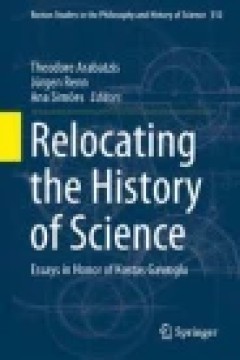
Relocating the History of Science
This volume is put together in honor of a distinguished historian of science, Kostas Gavroglu, whose work has won international acclaim, and has been pivotal in establishing the discipline of history of science in Greece, its consolidation in other countries of the European Periphery, and the constructive dialogue of these emerging communities with an extended community of international scholar…
- Edition
- -
- ISBN/ISSN
- -
- Collation
- -
- Series Title
- -
- Call Number
- -
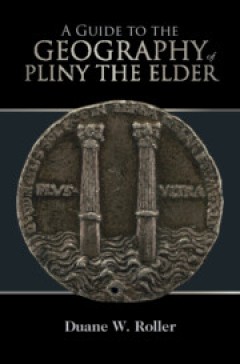
A Guide to the Geography of Pliny the Elder
This is the first thorough English commentary on the geographical books of Pliny the Elder, written in the AD 70s. Pliny's account is the longest in Latin, and represents the geographical knowledge of that era, when the Roman Empire was the dominant force in the Mediterranean world. The work serves both cultural and ideological functions: much of it is topographical, but it also demonstrates th…
- Edition
- -
- ISBN/ISSN
- 9781108693660
- Collation
- -
- Series Title
- -
- Call Number
- -
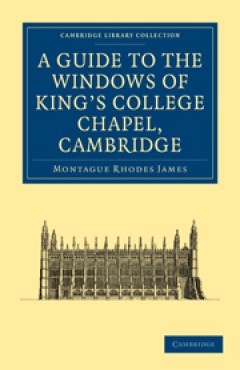
A Guide to the Windows of King's College Chapel, Cambridge
M. R. James (1862–1936) is probably best remembered as a writer of chilling ghost stories, but he was an outstanding scholar of medieval literature and palaeography, who served both as Provost of King's College, Cambridge, and as Director of the Fitzwilliam Museum, and many of his stories reflect his academic background. His detailed descriptive catalogues of manuscripts owned by colleges, ca…
- Edition
- -
- ISBN/ISSN
- 9780511710551
- Collation
- -
- Series Title
- Cambridge Library Collection - Cambridge
- Call Number
- -
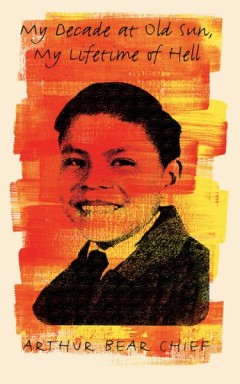
My Decade at Old Sun, My Lifetime of Hell
He returned to Gleichen late in life—to the home left to him by his mother—and it was there that he began to reconnect with Blackfoot language and culture and to write his story. Although the terrific adversity Bear Chief faced in his childhood made an indelible mark on his life, his unyielding spirit is evident throughout his story.
- Edition
- -
- ISBN/ISSN
- 9781771991759.01
- Collation
- 194
- Series Title
- Our Lives: Diary, Memoir, and Letters
- Call Number
- 194 pages
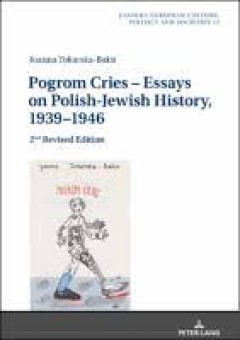
Pogrom Cries – Essays on Polish-Jewish History, 1939–1946 2nd Revised Ed…
This book focuses on the fate of Polish Jews and Polish-Jewish relations during the Holocaust and its aftermath, in the ill-recognized era of Eastern-European pogroms after the WW2. It is based on the author’s own ethnographic research in those areas of Poland where the Holocaust machinery operated. The results comprise the anthropological interviews with the members of the generation of Holo…
- Edition
- -
- ISBN/ISSN
- -
- Collation
- -
- Series Title
- -
- Call Number
- -

One world, many knowledges : Regional experiences and cross-regional links in…
Various forms of academic co-operation criss-cross the modern university system in a bewildering number of ways, from the open exchange of ideas and knowledge, to the sharing of research results, and frank discussions about research challenges. Embedded in these scholarly networks is the question of whether a ‘global template’ for the management of both higher education and national researc…
- Edition
- -
- ISBN/ISSN
- 9780620557887
- Collation
- 312 halaman
- Series Title
- -
- Call Number
- 370 ONE
 Computer Science, Information & General Works
Computer Science, Information & General Works  Philosophy & Psychology
Philosophy & Psychology  Religion
Religion  Social Sciences
Social Sciences  Language
Language  Pure Science
Pure Science  Applied Sciences
Applied Sciences  Art & Recreation
Art & Recreation  Literature
Literature  History & Geography
History & Geography